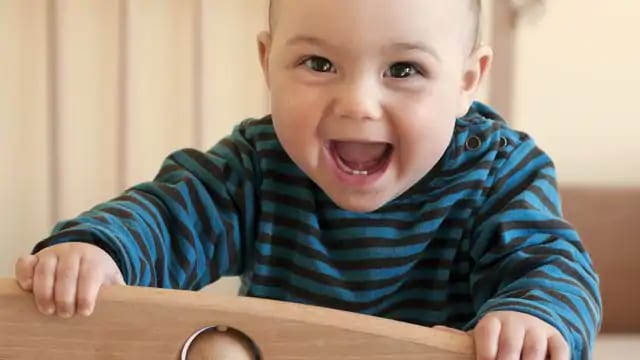Baby teeth may not last long, but cleaning a baby's gums and new teeth are of the utmost importance when it comes to their future dental health — even though they are not yet snacking on holiday treats. That is why both paediatric dentists and family dentists agree about when to take your baby to the dentist for the first time: No later than the child's first birthday. In some cases, they will even recommend bringing your child in after the first tooth appears. These are just general guidelines. What if you think something other than teething is causing pain in your child's mouth?

When To Take Your Baby To The Dentist And Doctor: Dental Care, Teething Issues And More
How to Properly Take Care of Baby Teeth
Dentists recommend taking care of your little one's primary teeth early, as the Ministry of Health and Family Welfare explains that any deviation from the normal alignment of teeth and / or upper / lower jaw may compromise the appearance or the functions like speech and chewing. Additionally, baby teeth form a path for the permanent teeth to follow. To keep these primary teeth healthy and to avoid rushing to the dentist in a panic, prevention is key. For starters, even before those pearly whites make their first appearance, gently clean the gums with a cloth or gauze and water. Soft toothbrushes designed for children's mouths can be used as well, but don't start to use toothpaste until the child is at least 2 years old. This gum-cleaning routine is good to do after nursing since breast milk can lead to tooth decay; it also accustoms your child very early to a daily dental routine. Once your baby's teeth start to come in, start a brushing and flossing routine, which your dentist or dental hygienists can discuss with you to ensure that it is done properly.
More Than Teething Symptoms: When To Take Your Baby To The Dentist And Doctor:
If your child is going through teething and is experiencing more than the above teething symptoms, it might be a sign that you should bring your child to the doctor or dentist. While low-grade fevers may be associated with teething, temperatures above 102 degrees Fahrenheit should not be dismissed, and you should immediately take your little one to the doctor. Additionally, opinions vary on the cause of diarrhoea and whether it is related to teething, but it is generally agreed that, if your baby has more than two diapers of loose stool, it is time to take him into the doctor to determine whether something else is afoot.
Severe coughs and colds are also not necessarily teething-related and should be immediately treated. Another symptom to watch for is bleeding. While a bit of blood spotting may occur if your baby develops a blister, or eruption hematoma, on the gums during teething, more than a few drops are a cause for concern, and an appointment for a dental visit should immediately be made.
- Drooling more than usual.
- Acting particularly fussy, especially at night.
- Face rashes.
- Biting (an attempt to relieve pressure).
- Difficulty nursing.
- Pulling the ears.
- Rubbing their cheeks.
The First Dentist Visit
In general, your baby's first dental visit will be around his first birthday. Make this an exciting time — but don't use sweets as bribes! — because it will set the tone for how the dentist is viewed for years to come. Many paediatric dentists will have toys and puppets to make the experience less intimidating, but if your child is fearful of all the tools and does not seem to be getting over the anxiety, it is OK to cut the appointment short and come back again in another six months. As always, talk to your dentist about how to help your baby have the best dentist experience possible.
This article is intended to promote understanding of and knowledge about general oral health topics. It is not intended to be a substitute for professional advice, diagnosis or treatment. Always seek the advice of your dentist or other qualified healthcare provider with any questions you may have regarding a medical condition or treatment.





